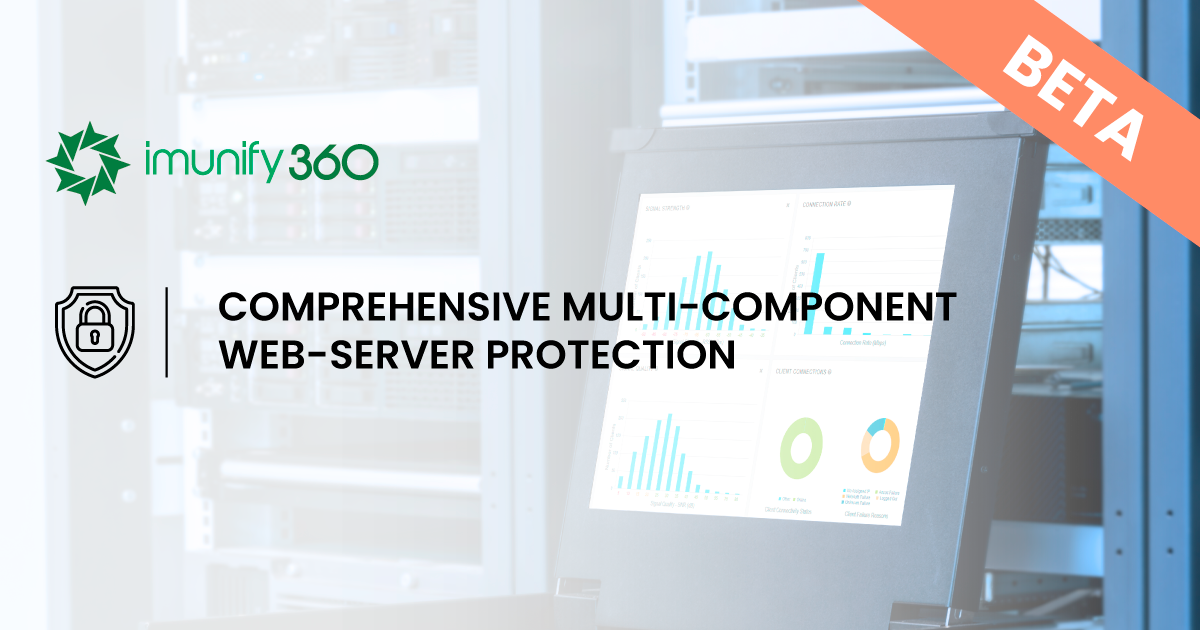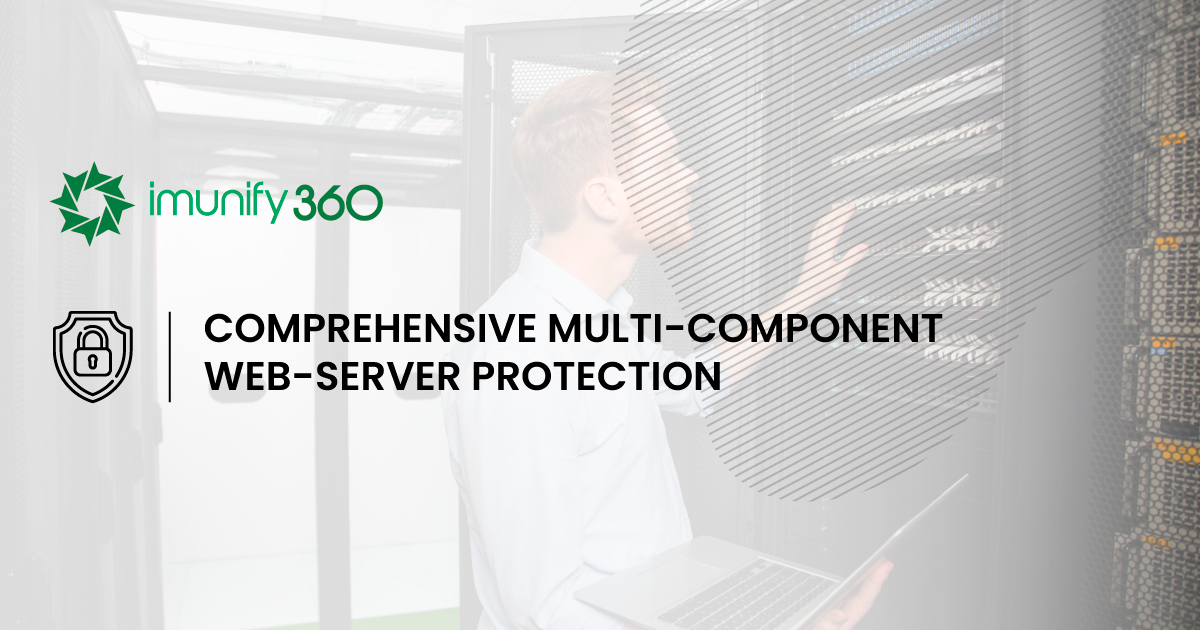
We’re pleased to announce a new beta version of Imunify360. Version 6.7 is now available. The following features are new in the v6.7 beta release:

We’re pleased to announce a new version of Imunify360. Version 6.6 is now available. The following features are new in the v6.6 release:
.png?width=1200&name=BLOG%20IMAGE%20(5).png)
Is your server security bullet proof? Could you benefit from a fully automated system that prevents malware and mitigates cyber attacks?
Join hosting security guru Eric Ellis this Friday at 1 pm EST to hear how others are using Imunify360 to secure their servers so they can focus on scaling their business.

We’re pleased to announce a new beta version of Imunify360. Version 6.6 is now available. The following features are new in the v6.6 beta release:
.png?width=1200&name=BLOG%20IMAGE%20(5).png)
Register and join hosting security guru Eric Ellis this Friday at 1 pm EST and see how Imunify360 detects and prevents malware and mitigates cyber attacks without being a security expert so you can focus on scaling your business.
We'll be talking about Imunify360, our next-gen security suite for Linux servers, and answering all your questions on how to get the best out of it.

We’re pleased to announce a new version of Imunify360. Version 6.5 is now available. The following features are new in the v6.5 release:

We’re pleased to announce a new beta version of Imunify360. Version 6.5 is now available. The following features are new in the v6.5 beta release:

We’re pleased to announce that a new version of Imunify360, version 6.4 is now available. The following features are new in the v6.4 release.

We’re pleased to announce that a new beta version of Imunify360, version 6.4 is now available. The following features are new in the v6.4 beta release.

We’re pleased to announce a new version of Imunify360. Version 6.3 is now available. The following features are new in the v6.3 release:

.png?width=115&height=115&name=pci-dss%20(1).png)
